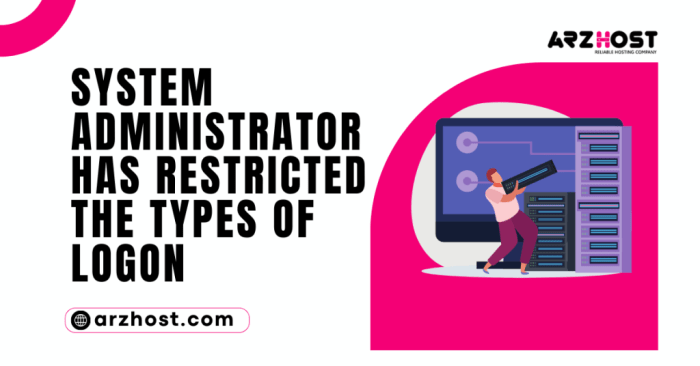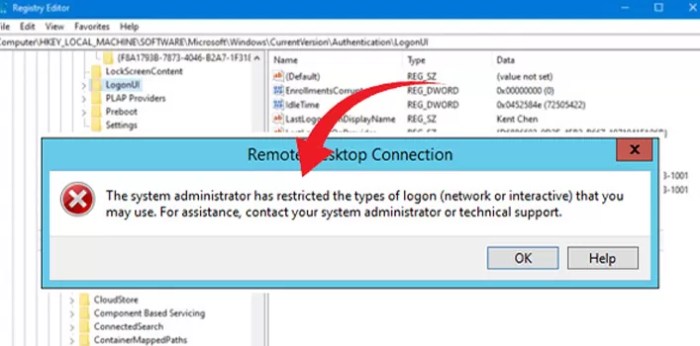System administrator has restricted the types of logon – System administrators play a crucial role in maintaining network security and data integrity. One aspect of their responsibility involves restricting the types of logon, a measure that can significantly impact user access and productivity. This article delves into the reasons behind such restrictions, their potential consequences, and effective workarounds while emphasizing best practices for managing logon limitations.
Logon Restrictions

A system administrator can impose various types of logon restrictions to control access to a computer system or network. These restrictions are implemented to enhance security, enforce compliance, and manage system resources.
Types of Logon Restrictions, System administrator has restricted the types of logon
- Time-based restrictions:Limit logon attempts within specific time frames, such as business hours or weekends.
- Location-based restrictions:Restrict logons from specific geographical locations or IP addresses.
- User-based restrictions:Limit logons based on user attributes, such as group membership, job title, or security clearance.
- Device-based restrictions:Restrict logons from specific devices or operating systems.
Consequences of Logon Restrictions
- Reduced productivity:Users may experience delays or difficulties in accessing the system, affecting their work efficiency.
- Limited access to resources:Restrictions can prevent users from accessing certain applications, files, or data.
- Increased security risks:Overly restrictive logon policies may create vulnerabilities by forcing users to find workarounds.
Workarounds for Logon Restrictions
- Remote access:Using a virtual private network (VPN) or remote desktop protocol (RDP) to access the system from a different location.
- Shared accounts:Creating shared accounts that multiple users can use to bypass restrictions.
- Elevated privileges:Obtaining administrative privileges to bypass restrictions, which poses security risks.
Best Practices for Logon Restriction Management
- Regular review and maintenance:Regularly review and update logon restrictions to ensure they remain relevant and effective.
- User communication:Clearly communicate logon restrictions to users and provide support to mitigate any issues.
- Balancing security and usability:Implement restrictions that balance security requirements with the need for user convenience.
FAQ Resource: System Administrator Has Restricted The Types Of Logon
What are the common types of logon restrictions?
Logon restrictions can limit access based on factors such as time of day, IP address, device type, and user authentication methods.
Why do system administrators restrict logon types?
Restrictions are implemented to enhance security, prevent unauthorized access, comply with regulations, and optimize network performance.
What are the potential consequences of logon restrictions for users?
Restrictions can hinder productivity, limit access to resources, and create inconvenience for users who need flexible logon options.


